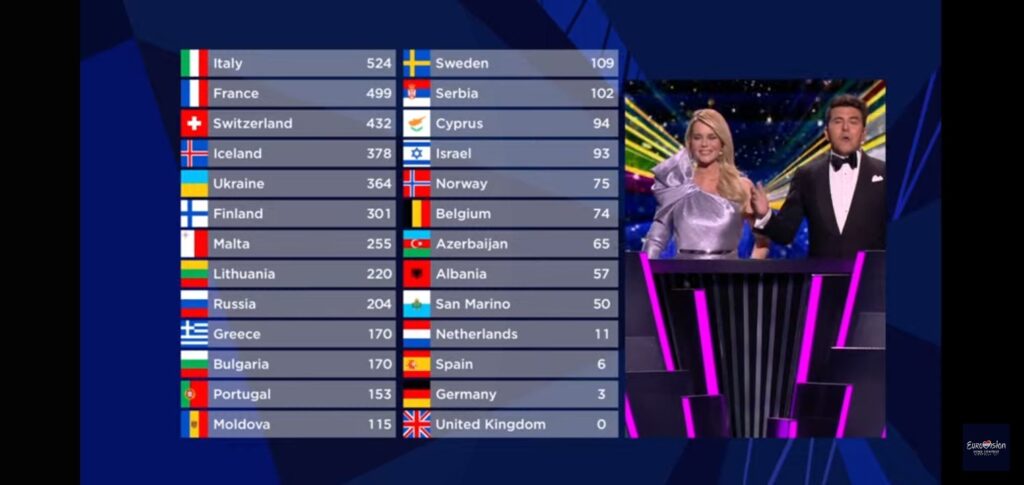In a COVID style grand final, where some contestants performed theirs acts remotely, Italy's 'Måneskin' has been declared the winner of The Eurovision Song Contest 2021.
Stefania Liberarakakis of Greece sang her way to tenth place, finishing with a total of 170 points while Elena Tsagrinou of Cyprus came 16th with 94 points.
Congratulations to Elena, and especially to Greece's Stefania who, at just 18 years of age, brought Greece back into the top ten Eurovision finalists after an eight year hiatus.
Of the 26 finalists, Stefania was the only contestant to showcase her country's flag, the Greek flag, on stage.
 The winner of the Eurovision Song Contest is selected by a positional voting system.
The winner of the Eurovision Song Contest is selected by a positional voting system.
The most recent system was implemented in the 2016 contest, and sees each participating country award two sets of 12, 10, 8–1 points to their ten favourite songs: one set from their professional jury and the other from tele-voting.
As has been customary in previous years, the United Kingdom finished last with a total of zero points.

The band members of Måneskin met in 2016 as students at the same high school. The band's name was chosen when they registered for a local music contest for emerging bands.
While brainstorming, De Angelis, who is half Danish, was asked by her bandmates to toss out some Danish words, and they agreed on Måneskin (moonlight), although they say its meaning is not related to the band itself.
They later performed as buskers in the streets of the Colli Portuensi district of Rome, as well as in the historical centre of Rome including in Via Del Corso.

Previous winner of The Eurovision Song Contest 2005, Greece's Helena Paparizou, performed her winning song from the rooftop of New York Hotel in Rotterdam, the Netherlands.
In another first, the spokesperson for Greece was 10 year old Manolis Gkinis, the youngest spokesperson ever in the 65 year history of Eurovision.
The young actor stars in the ERT series 'Ta kalýterá mas chrónia'.


